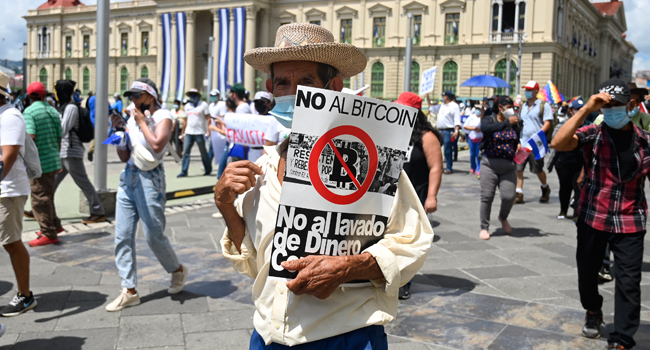Thousands of Salvadorans protested Wednesday against the government’s introduction of bitcoin as legal tender in the impoverished country as well as against judicial reforms that critics say threaten democracy.
Last week, El Salvador became the first country to use the cryptocurrency as legal tender, alongside the US dollar. The move by President Nayib Bukele was met with a mix of curiosity and concern.
On the day that the Central American country marked the bicentennial of its independence from Spanish rule, protesters burnt a bitcoin ATM in the capital San Salvador, one of about 200 that have been installed throughout the country as part of the reform.
Protesters on a central square in the capital held aloft placards denouncing a “dictatorship” and signs reading “Respect the Constitution” and “No to bitcoin.”
Bukele condemned the protesters in a tweet Wednesday, calling them out for property destruction.
“They say the ‘vandalism’ was done by ‘infiltrators,’ but there is vandalism at ALL their protests,” he tweeted, attaching a video of a masked woman kicking down a glass security wall.
Speaking later at a televised ceremony to mark the country’s bicentennial, the president claimed some protestors were being financed by the “international community.”
“The sad thing is that they are financing a perverse opposition,” he said.
“Those who want to demonstrate, continue to demonstrate, this country is free.”
He also noted that so far police had not used tear gas to contain protests — but suggested they could if the “international community” continued to fund their movement.




















